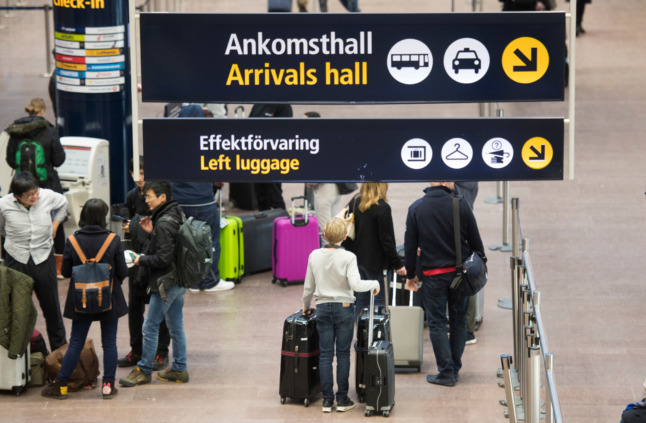Immigration to Sweden increased year-on-year in 2021 for the first time since 2016, when around 163,000 new residents were added to the country’s population register, according to fresh data by national number crunchers Statistics Sweden.
In total, 90,631 people moved to Sweden last year, up 9.8 percent on 2020.
The largest group of immigrants, 11 percent, were Swedes returning to their country of birth.
This was followed by people born in India. A total of 6,017 people born in India moved to Sweden last year, an increase of 48.2 percent on the previous year.
The next largest groups were from Syria (3,538 people born in Syria became registered as residents last year), closely followed by Germany (3,501) and Pakistan (3,240).
Fewer people emigrated from Sweden last year, with 48,284 people moving out – a decrease of 1.3 percent compared to 2020, according to Statistics Sweden’s data.
Again, most of these were native Swedes – 16,975 in total – of whom 10.4 percent moved to the UK, 10 percent moved to Norway and 8.3 percent moved to Denmark.
More than half of all emigrants last year (55.9 percent), at least the ones who were not born in Sweden, returned to their country of birth. This was particularly common among people born in Finland, with 1,609 Finnish-born people returning to Finland from Sweden.
The number of foreign-born residents in Sweden grew to 2,090,503 people last year, an increase of 2.1 percent. Syria, Iraq and Finland make up the top three countries of birth. Sweden’s total population stood at 10,452,326 at the turn of the year.
If you are new to Sweden, welcome! We hope you’ll like it here. The Local has plenty of guides, analysis and features aimed at newcomers and long-term residents, and if there’s a topic you’ve got questions about or think we should cover, you’re always welcome to get in touch. And for anyone wondering how they can stay in Sweden forever, here’s our guide.



 Please whitelist us to continue reading.
Please whitelist us to continue reading.
Member comments